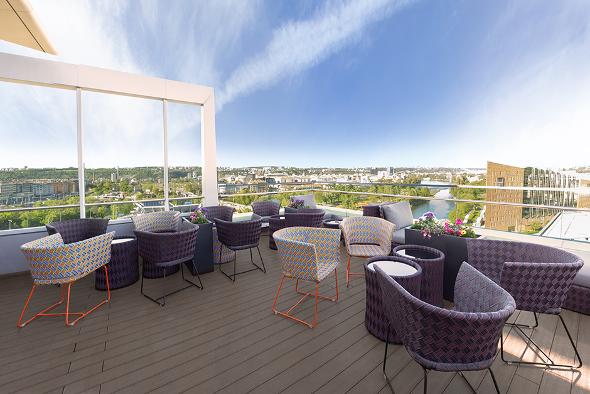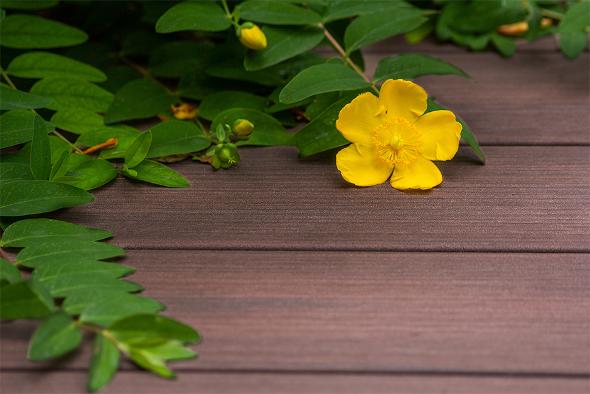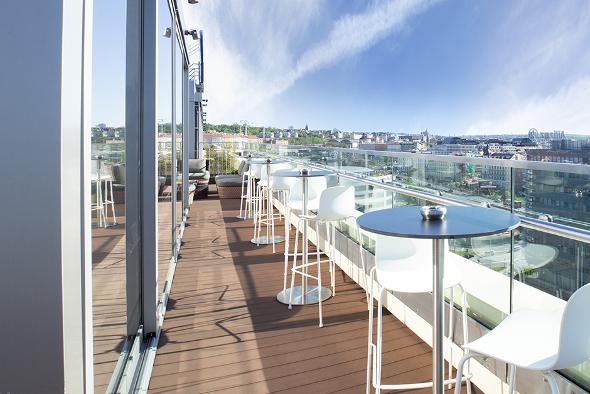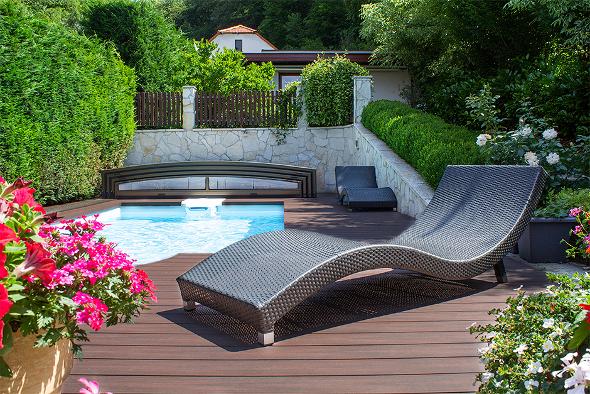Internationale Partnersuche
Innovation & Technologie Angebot
Complete know-how and show-how for manufacturing decking boards, fences, and cladding made of wood-plastic composites is offered for licensing or joint venture
Country of Origin: Czech Republic
Reference Number: TOCZ20180725001
Publication Date: 25 July 2018
Summary
A Czech SME offers know-how and show-how for manufacturing wood-plastic composites intended for manufacturing decking boards, fences, and cladding. The main advantage is that it is a proven technology with an exceptional warranty of 25 years available for a very fast realization as the facility can be set up in few months. The company is looking for a licensee or a joint venture partner.
Description
Wood-plastic composites (WPCs) are composite materials made of wood flour and HDPE (High-Density Polyethylene). In addition to wood flour and plastic, WPCs can also contain other inorganic additives. Wood-plastic composites (WPCs) are produced by thoroughly mixing ground wood particles and heated thermoplastic resin.
Wood-plastic composites (WPCs) are still new materials relative to the long history of natural lumber as a building material. The most widespread use of WPCs is in outdoor deck floors, fences, cladding and window and door frames, and indoor furniture.
Main purpose of using wood-plastic composites (WPCs) material in comparison with wood is, that it retains the best properties of wood (it’s nice to touch, got a natural look) and at the same time it eliminates its problems (decay, cracking, splinters, greying, etc.). Compared to the wood it does not have to be impregnated, painted or surface-protected.
Generally, the principle of manufacture is in conjunction of wood flour with polymer HDPE (High-Density Polyethylene). Three more additives are entering the bonding of the two substrates – but they are virtually unnoticeable and help the binding process of the wood and HDPE. Another additive is of course some colourant that help to the final look of the WPC (wood-plastic composites) material. The binding process is called extruding (extrusion + compression) is being made in relatively high temperatures. The final form is made by compressing the produced material through die system and cooling.
Competing solutions differ mainly in ratio of wood and HDPE (High-Density Polyethylene) and in the set-up of manufacturing system. This influences final product properties such as surface quality, warranty etc.
The Czech SME offers a complete manufacturing process including staff training for licensing or a joint venture agreement. Its wood-plastic composite (WPC) is based on 60 % wood and 30 % HDPE (High-Density Polyethylene). Thanks to this composition the material gets the wishing properties and still looks like wood. The Czech SME provides a complete material description in order to have full understanding of the used raw materials. Also, the quality of final products is reached thanks to unique die system developed and fine-tuned by the company.
Services included in the offered licence or joint venture agreement are:
- Assistance with the decision which product is the most suitable for your business based on the mutual experiences of the local market.
- Agreements with licensed equipment suppliers. The main benefit of using standardized equipment is that your facility can start production within 6 months after the contract settlement.
- Assistance with finding raw material suppliers for the wood-plastic production.
- Employee training together with the Czech partner
- Constant improvement of the production processes to achieve maximum effectivity.
- The Czech SME will calculate the total cost of production and point of return for the new partner based on all the inputs collected
- The Czech SME will be available in case of any technical difficulties.
The Czech SME is seeking ambitious industrial partners who would like to acquire a licence to manufacture the offered system based on a licensing agreement. The content of a licensing agreement is described above.
Alternatively, establishing a joint venture with a partner having local market knowledge and a know-how provided from the Czech side is also a cooperation option. The ideal partner for a joint venture would be a local company experienced in manufacturing products like floors, fences, cladding or window and door frames and wishing to either improve its current product portfolio or enter into new business field. The Czech SME operates plant in the Czech Republic manufacturing wood-plastic composites and wishes to expand its business abroad. Therefore, establishing a joint venture with would be beneficial for both partners.




Advantages and Innovations
- Exceptional warranty: 25 years on wood-decaying fungus, rot and insects
- Proven technology (30 years of experiences) – reliable production, stable material composition and properties
- High quality and precise manufacturing
- Fast realization – within few months your facility can be up and running
- Whole spectrum of colours and designs of the products
- Minimum production waste – nearly all the production waste can be recycled
- Unique die system – improved mechanical properties of the product, faster production, homogenous product, no fraying along product edges
- Laser control – faster production, less production waste, faster production rump up, the most beautiful designs on the market
- Full profile – no water nor fungus inside deck boards, no banding, tearing, and cracking
- Two-step production – dry mixture, no air bubbles in an extruded mass
Stage Of Development
Already on the market
Requested partner
The company is seeking ambitious contract manufacturers either already manufacturing wood-plastic composites or companies wishing to expand its manufacturing portfolio. The partner sought will pay a licence fee for every kilogram they produce. Using the company's technology, the partner will improve quality of its product’s portfolio. This will also help the potential partner to attract more businesses.
The envisaged collaboration will be under a licencing agreement or a joint venture. In the case of joint venture is expected establishing a partnership with a partner either having local market knowledge or already manufacturing products like floors, fences, cladding or windows etc. The partner for joint venture using a know-how provided from the Czech side may improve its current product portfolio or enter into new business field.
Dissemination Countries
Albania, Austria, Bosnia and Herzegovina, Belgium, Bulgaria, Cyprus, Germany, Denmark, Estonia, Spain, Finland, France, Greece, Croatia, Hungary, Ireland, Italy, Lithuania, Luxembourg, Latvia, Montenegro, Macedonia, The former Yugoslav Republic of, Malta, Netherlands, Poland, Portugal, Romania, Serbia, Russia, Sweden, Slovenia, Slovakia, Turkey, United Kingdom
Cooperation offer ist closed for requests

